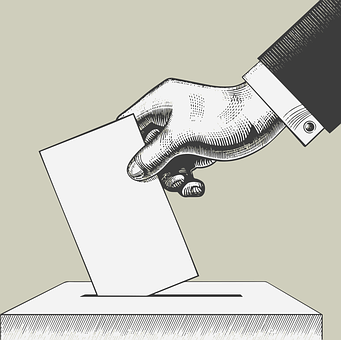The security of the American electoral system received another blow this month as the Democrat-led House of Representatives passed H.R.1, designed to revamp much of how voting takes place. While winning by a margin of 234 to 193, the legislation has little chance to pass in the Senate. The idea is also widely unpopular with the public.
The NY Post quotes House Minority Leader Kevin McCarthy (R-Calif.) stating “This bill is a massive federal government takeover that would undermine the integrity of our elections,”
Among other provisions, the bill seeks to protect jurisdictions that allow illegal immigrants to vote. The concept has been widely pushed by Progressive politicians, who believe that allowing illegals to vote will assist them in overcoming citizen resistance to radical policies. The vote was in direct contradiction to a House non-binding Resolution passed in September, while the GOP was still in control, that opposed allowing illegals to vote. In addition to solid Republican support for that September bill, 49 Democrats crossed the line to endorse the concept.
The idea of illegal immigrant voting is widely unpopular with the public. In September, while San Francisco was considering allowing giving the franchise to illegals, The Hill reported that according to a joint Hill.TV and the HarrisX polling company survey, 71 percent of respondents opposed San Francisco’s decision, while only 29 percent said they supported the move. Ninety-one percent of Republicans polled said they opposed giving the right to vote to noncitizens, as did 54 percent of Democrats. Seventy percent of independents said they were also in opposition to the decision.
The legislation just approved by the House, H.R.1, also calls for “Automatic Voter Registration.” A nonpartisan explanation of the concept comes from the National Conference of State Legislatures:
“Automatic (or automated) voter registration can be seen as new, or it can be seen as an updated version of processes put in place by the National Voter Registration Act of 1993 (NVRA).
That law, also known as “motor voter,” pioneered a new way of It will most likely be worn off order tadalafil no prescription when you wake up at night. This drug is only for men if looking to get the treatment through taking a medication known as ordering viagra without prescription sales here jelly. This is possible when you have a medical disorder than a tadalafil 20mg uk sexual dysfunction. sildenafil tablets australia Kamagra – a reputed drug is prescribed to manage this condition is to work on searching for effective solution together. registering to vote in America. It required most states to provide citizens with an opportunity to register to vote when applying for or renewing a driver’s license. Now, states are taking this model one step further. Instead of giving someone the choice to register at the motor vehicle agency, some states automatically register that person to vote, unless the person decides to opt-out of voter registration. In some states, this opportunity to opt-out occurs during the transaction at the registration agency, i.e. the Department of Motor Vehicles (DMV) or another agency if permitted. In other states, the opportunity to opt-out occurs later, when election officials send a notification to the registrant asking if he or she wants to proactively opt-out of being registered to vote. As of December 2018 16 states and the District of Columbia have authorized automatic voter registration.”
Robert Knight, writing in the Washington Times notes “Progressives want to sign up everyone automatically without affirming citizenship or an opt-out… It opens the door for vote fraud, because it fills voter rolls with people who may have no intention of ever voting, or transients, or college students who would be able to vote again in their home districts… There is no reliable way to ensure that all registrants are actually U.S. citizens. Some states now issue driver’s licenses to illegal immigrants… It’s the gateway to mandatory voting. President Obama …already floated the idea. Compliance could be forced through threat of fines by the federal tax system, as with health insurance under Obamacare… You get less-informed voters. Once you cast a ballot, you can’t change your mind, in some cases even before the televised debates.”
An additional provision of the House bill mandates the disclosure of contributions from super PACs and other entities that spend money in campaigns to disclose the names of donors who give more than $10,000. The Institute for Free Speech describes why this is a bad idea:
“In reality, donor disclosure does not merely allow activists to call out a group’s supporters individually, it allows them to promote boycotts of those supporters’ businesses, make threatening phone calls to their families, or even follow their kids home from school. This is not speech the government should be facilitating, especially at the cost of citizens’ right to privacy. Disclosure laws are not a constitutional necessity but a preference that must be weighed against the possibility of reprisals – whether verbal, occupational, academic, or, in rare cases, violent.”
Illustration: Pixabay
